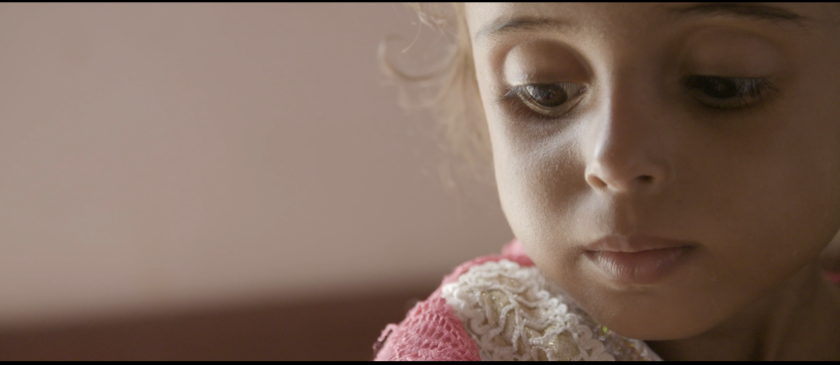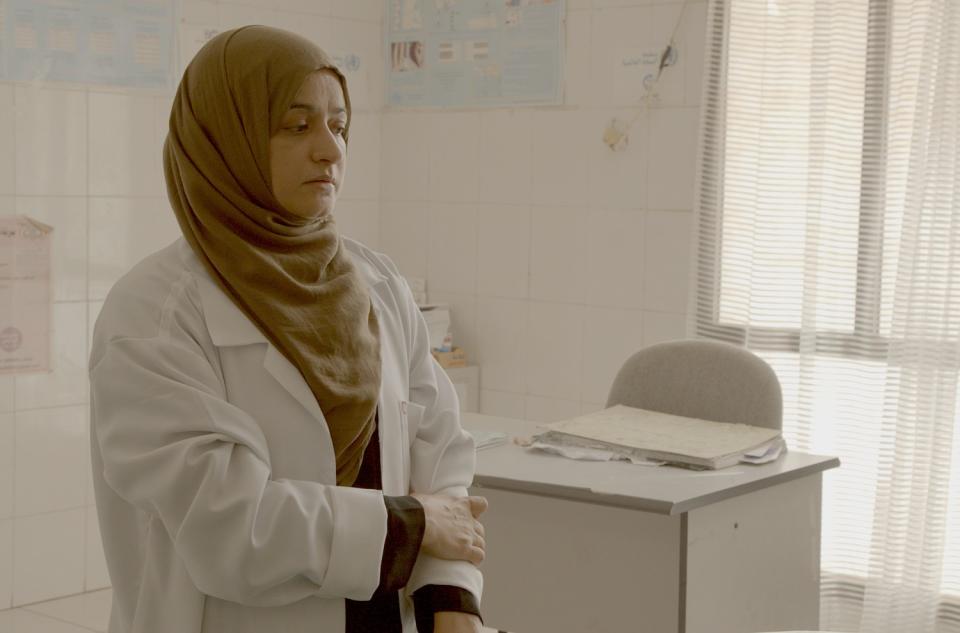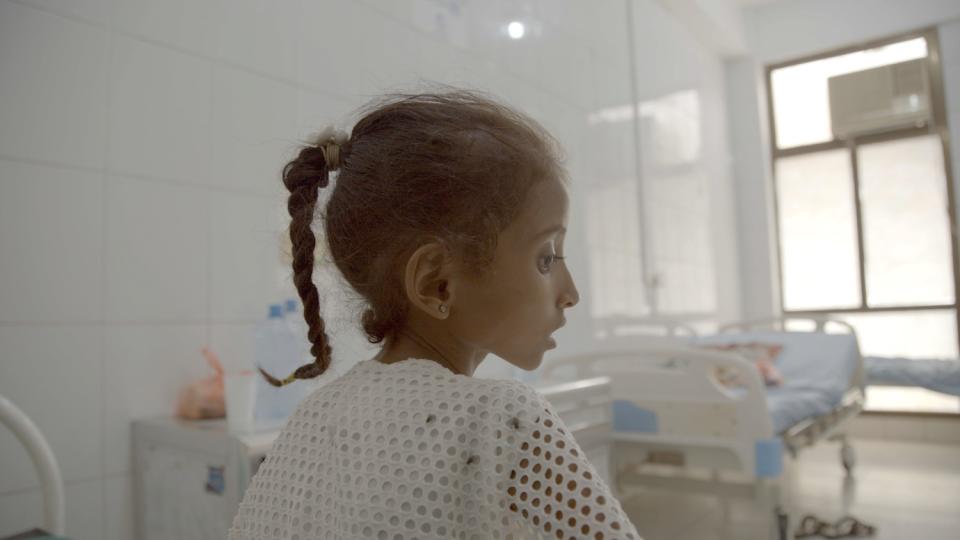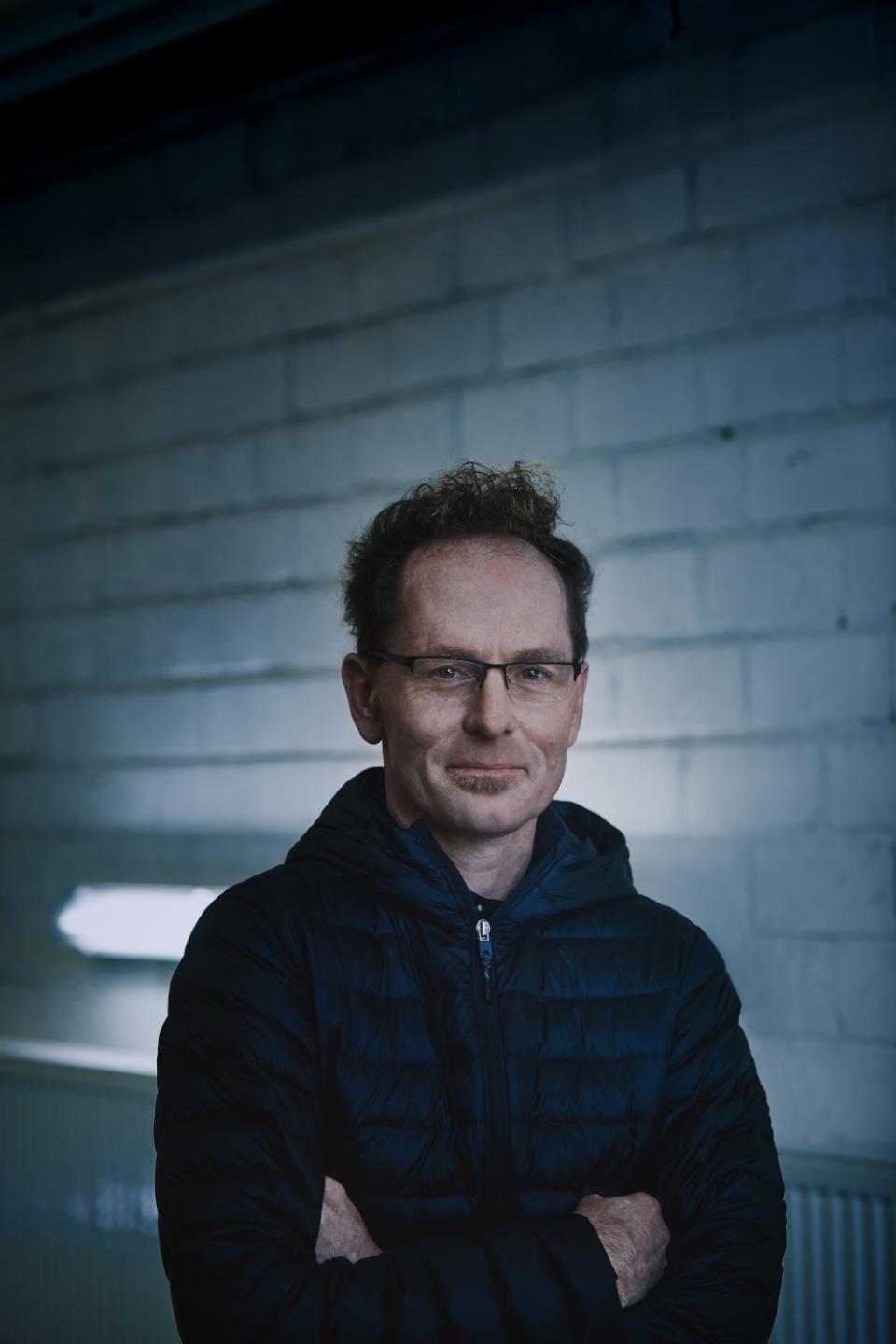Oscar-nominated short documentary 'Hunger Ward' spotlights famine in Yemen

- Oops!Something went wrong.Please try again later.
As a documentary filmmaker, Skye Fitzgerald is drawn to subjects that others may want to look away from. "My philosophy is that it's OK to be uncomfortable," he says. "And, in fact, it's probably good."
Based in Portland, Ore., Fitzgerald has spent his career documenting human rights and social justice issues, spotlighting unsung heroes trying to make a difference in some of the world's most broken and desperate places. His 2015 short documentary "50 Feet From Syria," which was shortlisted for the Academy Award, followed an Arab American doctor as he traveled to the Syrian-Turkish border to volunteer treating civilians wounded in Syria’s civil war. For his 2018 Oscar-nominated short "Lifeboat," Fitzgerald embedded with a German nonprofit rescuing North African migrants adrift on the Mediterranean.
With his latest film, "Hunger Ward" — the final installment in what he calls his Humanitarian Trilogy — Fitzgerald takes viewers inside two clinics in war-torn Yemen that treat malnourished children. With millions of Yemeni children pushed to the brink of starvation due to a civil war that's now in its seventh year, the film is at once a heartbreaking look at unimaginable suffering in a country most Americans know little about, despite U.S. involvement in the conflict, and a stirring call to action. Nominated for an Oscar in the documentary short subject category, the 40-minute film, which is being released by MTV Documentary Films, begins streaming on Paramount+ on Friday and is playing in theaters across the country as part of ShortsTV's annual Oscar Shorts program.
"Hunger Ward" centers on two women, Dr. Aida Alsadeeq and nurse Mekkia Mahdi, as they struggle to save young lives in the midst of a devastating famine and a society whose very foundations have collapsed. After hearing from colleagues about the work the two women were doing, Fitzgerald connected with Alsadeeq and Mahdi via WhatsApp to see if they'd be willing to open their clinics to his cameras.

"I shared with them what we hoped we would be able to do if we could gain access to the country, that we hoped to understand their work on a deep level," says Fitzgerald, who spent nearly nine months working to secure visas to enter the country. "Once some questions had flowed back and forth, they both agreed."
Though he'd worked in conflict zones before and had seen the ravages of war up close, nothing could have prepared Fitzgerald for the wrenching scenes he witnessed in the two therapeutic feeding centers. Within two hours of filming, he and his two-person crew saw the first child die in front of them. Shooting for roughly a month in the facilities, one in the north of the country and the other in the south, Fitzgerald followed the care of two girls, 6-year-old Abeer and 10-year-old Omeima, who weighed just 12 and 24 pounds, respectively.
"There was a lot of thinking that went into the idea of, ‘How much is too much?’" Fitzgerald says. "How do you engage the viewer so they will keep looking and not turn away? As a filmmaker, I can really place a person in that room for that moment as it unfolds. And if we can do it with enough grace, seeking beauty in the moment, then people will stay engaged, even if it's a hard thing to look at. I think that we play a really important part as filmmakers to not flinch, to not turn away."

Without shying away from the horror and pain, Fitzgerald sought to bring a degree of visual poetry to the film, incorporating evocative images of a dog chained up amid bombed-out ruins, a weary but determined Mahdi blowing up balloons to give to her emaciated patients and sandals left behind by mourners after a memorial service was hit by a missile strike.
"Those are the moments I was looking for throughout the film: How can we focus on these things in a visual way so that people understand them not intellectually but with empathy," he says. "I think we can all relate to a shoe that's been lost, and when you start to connect it to why this sandal is not on someone's foot, it has a completely different meaning."
When longtime documentary producer and former HBO executive Sheila Nevins saw "Hunger Ward," she knew right away that she wanted to acquire the movie and get it in front of the biggest audience possible through the reach of MTV Documentary Films. Since Nevins launched the company in 2019, she has been looking to back documentary projects — like 2019's Oscar-nominated short "St. Louis Superman" and this year's shortlisted feature "76 Days," which took viewers inside hospitals in Wuhan, China, during the early days of the COVID-19 pandemic — that explore trends and stories affecting young people.

"I just couldn't stop thinking about the film, and I couldn't stop wanting people to see it," Nevins says. "It shows you the power of film. I must have passed a million articles about Yemen and read them and thought, 'Oh, this is terrible.' But I really didn't know until the kids broke my heart. And I thought, ‘If I don't know it, a lot of people don't know it, certainly not with this impact.’"
In a cruelly ironic twist of fate, as Fitzgerald was finishing the edit of "Hunger Ward" in August, his mother died of complications from anorexia.
"Food is life," Fitzgerald wrote on Facebook after his mother's death. "And yet, when you do not have access to it — whether through choice or circumstance — you will die. I do not wish to judge, but to find a way to pay tribute to my Mom and to all who suffer from hunger — whether self-induced or not. How does one live in a world where some die of hunger because they cannot reach for the spoon and others die of hunger because there is no spoon? I don't have the answer today."
Having watched Yemeni parents and grandparents being devastated emotionally over the loss of children, Fitzgerald felt a deep responsibility to honor their stories.
"The last thing I would ever want to be accused of would be creating a piece of poverty porn, because I hate that kind of work," says Fitzgerald, who received some outside backing for the project after self-financing the previous two films in his trilogy. "We didn't set out to do an NGO video about starving children. We set out to try to do something where, hopefully, at the end of it, people would understand on a deep and visceral level what it's like to lose a child in 2020 from hunger."
Fitzgerald has been gratified by the response to the picture and sees glimmers of hope for the long-suffering people of Yemen. In February, the Biden administration announced an end to U.S. participation in offensive military operations in Yemen, reversing the Trump administration's policy of supporting Saudi Arabia in its battle against Iranian-backed Houthi rebels in the proxy war.
"We have partnered with over 200 groups who are trying to alter U.S. policy in Yemen," Fitzgerald says. "We're proud to be part of that movement, and we're going to continue to be a part of it until the U.S. has completely extricated itself from the conflict.
"It's easy to see all this as hopeless. It's dark subject matter. There's no getting around it. But there is a way for us to come together and solve these things, because we share so much. I'm always looking for the hope. Sometimes, you know, you just have to look."
This story originally appeared in Los Angeles Times.

